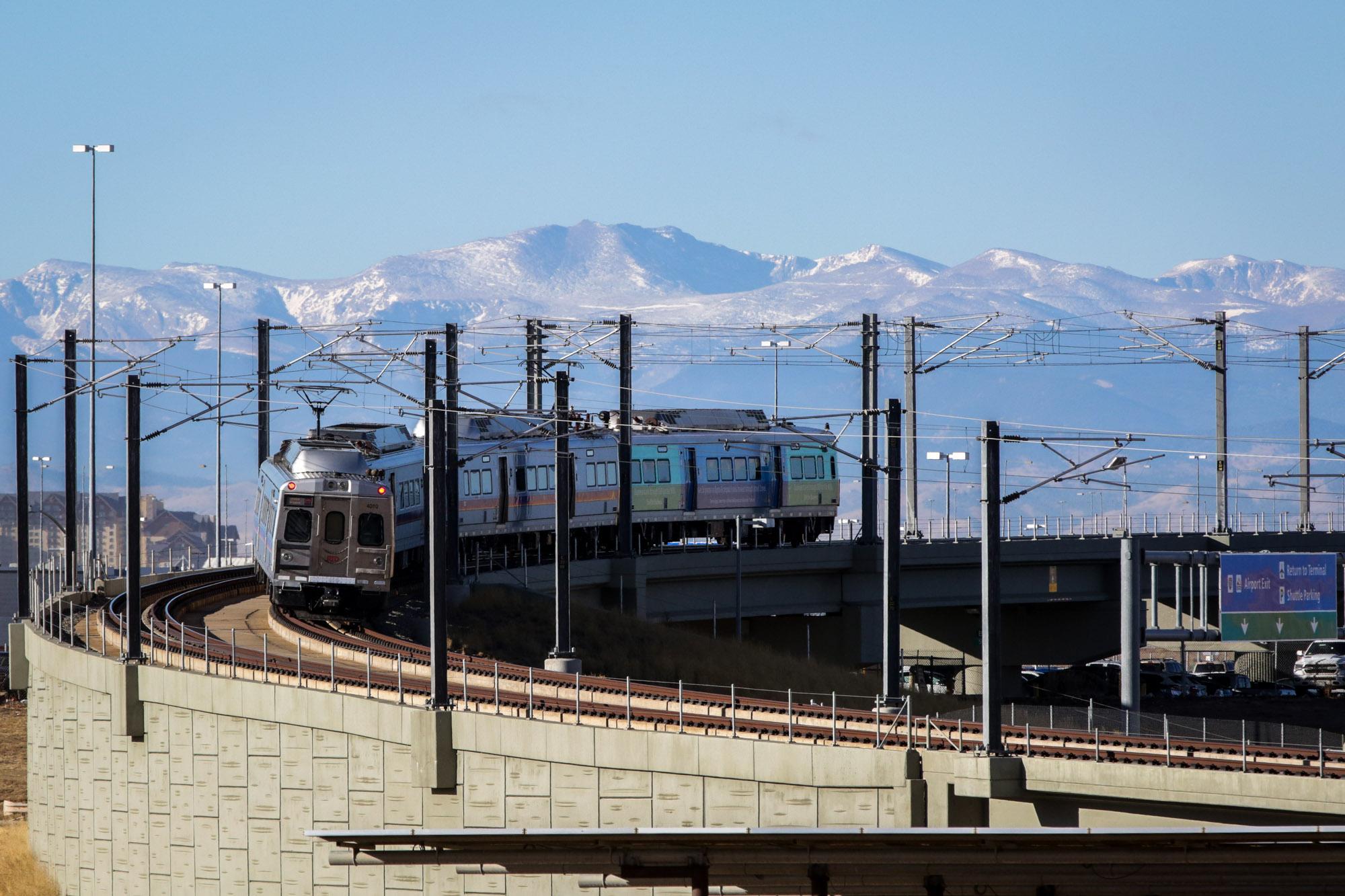In November, greater Denver residents are supposed to vote for eight seats on the Regional Transportation District board, which oversees the public transit system from Longmont to Parker with Denver and surrounding towns in between. Three of those seats include parts of Denver proper, while others include nearby areas like Aurora and Englewood.
But those elections could get canceled if the state legislature passes a bill backed by Gov. Jared Polis and a handful of state Democrats from the metro area, which would eventually drop RTD’s board seats from 15 to seven. Instead of a fully elected board, two of those remaining seven seats would be appointed by the governor.
Instead of dividing the region up into 15 districts under the current system, the bill would divide RTD’s service area into three much bigger districts each with one board member, while the other four members would serve at large. Elections would be ranked choice without the chance for write-in candidates, and salaries would jump from $12,000 to $35,000.
Proponents of the bill say it would strengthen and professionalize the agency, which has struggled with ridership and staffing in the years since the pandemic. The bill’s backers point to the train between Denver and Boulder, which voters approved through a sales tax in 2004 but was never built following financial challenges.
Polis has said he does not have confidence in RTD governance, and that state money for transit would have to come with a leadership overhaul to fix “broken promises.”
But local leaders in Denver — many of them members of RTD’s board or who plan to run — say the bill would take away representation from residents.
At a town hall Monday, RTD board members and other community leaders called the bill antidemocratic, with concerns that fewer seats would lead to more costly elections and worse representation for minority communities of color if they are subsumed into bigger districts. Some Denver-area state representatives have also voiced opposition over concerns about representation.
“I think any time that you disenfranchise voters and you lose the ability to elect people that represent you, it's attacking democracy and there's no need for it,” said RTD Director Michael Guzman.
Guzman said an elected board can serve as a check on a single governor’s political interests. The board approves RTD contracts and has a say over how the agency uses its money — the proposed bill could put more of that power into the governor’s office through appointees.
“Just because our governor is a Democrat now does not mean he will always be,” he said.
Board members also talked about recent RTD changes, including lowering and simplifying fares, free fare summers and year-round for youth and ridership ticking up from a major pandemic drop. But ridership numbers still lag behind pre-pandemic times and riders complain about things like cut service and a lack of bus stop infrastructure.
On Tuesday RTD Board members voted unanimously to oppose the bill. RTD Board Director Erik Davidson called the bill rushed and said state leaders need more stakeholder engagement. He pointed out that voters approved the elected governance structure in 1980, but the bill would take away many elected seats without putting the decision to the voters.
“It is not clear what problems are being solved,” he said.
Local leaders want the state to commit to more money for RTD instead.
Shontel Lewis, a former RTD board member and current Denver City Councilmember, said RTD needs more money to improve service, not a governance overhaul. Polis has said more money for transit will come through a potential tax and a bid for federal dollars. But his focus is on Front Range rail, serving riders from Pueblo to Fort Collins. His administration wants RTD to help build the Denver to Boulder section of the line.
“This bill as it is written is not about improving regionalism, it’s not about improving ridership, it’s about a government taking over an agency in order to finish a train that we have not even talked about in terms of funding,” Lewis said. “And to do so on the backs of those who depend on our public transportation system to live their everyday lives.”
Mayra Gonzáles, a chief impact officer with the Montbello Organizing Committee, joined a group of northeast residents — many of whom only spoke Spanish — at the town hall to learn more about the bill. She said the Montbello Organizing Committee had not yet taken a stance on the bill but that she has concerns.
“Preemptively, it just doesn't feel right to get rid of our very small and limited representation,” she said. “We have a lot of folks who commute to Boulder, I just wish that our Governor was as equally as interested in making sure that folks in the far northeast were able to get to their day-to-day locations.”













